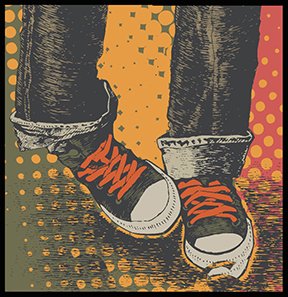
Mystery Scars Afterword
The “why” behind the book
“Never underestimate the power of a person who is healing their trauma. This person has been through the darkest places that the world has to offer and is still standing before you, committed to seeking the light.”
Dr. Mariel Buqué, Trauma Psychologist and Author
Love Our Children Always
Young people struggling with anxiety and depression often hide their pain. They muster unimaginable strength and energy to “pretend” every single day – until they just can’t anymore.
If they succumb to their demons and the unimaginable happens, those who love them are shocked, even if there had been signs. Family and friends search for reasons, for faults in parenting, for any failures in attention and connection. Yet satisfying answers are rare. I know loving, dedicated moms and dads whose young adults took their lives. I’ve talked to teens who lost best friends this way. None of them have resolved the anguish of “why?”
It is impossible to fathom the grief or devastation of losing a child, especially to suicide. Yet a growing number of parents bear this unspeakable burden. I wrote this book because research shows a clear link between childhood sexual abuse and dramatically increased risks for suicide attempts. While it is far from the only cause, it is a significant one.
As someone familiar with the trauma of childhood sexual abuse and disassociation, I’ve tried to adequately capture the victim’s experience. The internal “knots” that Jewel had to understand, accept, and untie with the help of her therapist and friends are one manifestation of the terror and pain of abuse, whether it is remembered or buried in the subconscious.
But everyone’s journey is unique. While I wanted this ending for Jewel, happy outcomes like hers are not always the case. Treatment approaches and timelines differ geographically, circumstantially and, too often, by race, class, and gender.
So many factors play into a child’s ability to thrive. A lot of them are out of a parent or caretaker’s control. Yet, there is consensus about certain things that do help.
Key among them are communication and community.
To anyone feeling darkness and despair: please tell a trusted adult or friend. If no one comes to mind, please call the 988 crisis hotline. You are worth it, and you are not alone.
And to all who are raising children: It is hard! We often don’t know what to say or are afraid of saying the wrong thing. We don’t know how to show we care, and when to demand rather than guide. But what is irrefutable is that all kids want and deserve to be loved. So if nothing else, be there for your children, even when they act like they don’t want you around. Listen to your children, even when you’re too busy. And love your children, always.


